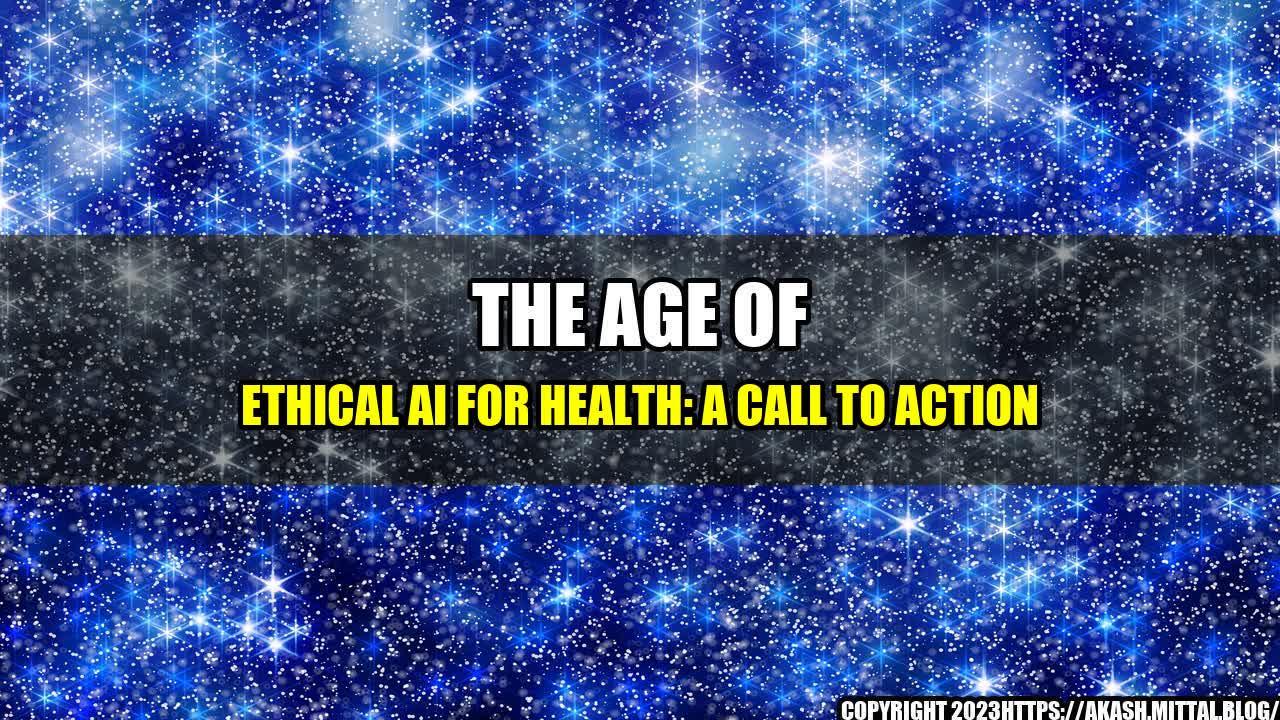
As a woman in her mid-thirties, Emma was devastated when she was diagnosed with breast cancer. She turned to the internet for support, information, and hope. After hours of reading countless forums, medical journals, and websites, she stumbled upon an AI-powered platform that promised to help her find the most effective treatment for her specific type of cancer. Without hesitation, Emma signed up for the service, hoping that this technology would save her life.
Unfortunately, Emma's story is not unique. In recent years, there has been a proliferation of AI-powered health solutions that promise to revolutionize the way we diagnose, treat, and prevent diseases. However, not all these innovations are created equal. Some are based on biased data that can lead to incorrect diagnoses and recommendations, while others pose risks to patient privacy and autonomy.
In light of these challenges, the World Health Organization (WHO) is calling for safe and ethical AI for health. This means that AI-powered health solutions should prioritize patient safety, equity, and privacy, and foster trust between patients, healthcare providers, and technology developers. Here are some quantifiable examples of why we need ethical AI for health:
Patient safety: In 2018, the US Food and Drug Administration (FDA) recalled an AI-powered device that was used to detect heart disease. The device had been trained on biased data that led to false positives and negatives, putting patients at risk.
Equity: A study published in The Lancet Digital Health found that commercially available AI-powered skin cancer detectors were less accurate in detecting skin cancer on darker skin tones, potentially leading to delayed diagnoses and treatment.
Privacy: A recent article in Forbes highlighted the potential privacy risks posed by AI-powered voice assistants that record patients' conversations with their healthcare providers, raising concerns about data breaches and exploitation.
To ensure that AI for health is safe and ethical, WHO recommends the following:
1. Establish ethical AI standards for health that are informed by patients' needs, rights, and concerns, and that promote transparency, accountability, and fairness.
2. Foster collaboration between patients, healthcare providers, policymakers, and technology developers to ensure that AI for health is deployed in ways that prioritize patient safety, equity, and privacy.
3. Invest in research and development to identify and address the potential risks and benefits of AI for health, and to ensure that AI-enabled solutions are based on diverse and representative data.
At the end of the day, the goal of ethical AI for health is to empower patients like Emma to make informed decisions about their health and wellbeing. By prioritizing patient safety, equity, and privacy, we can harness the power of AI to improve health outcomes for all.
Reference urls:
- WHO: https://www.who.int/teams/health-ai
- The Lancet Digital Health: https://www.thelancet.com/journals/landig/article/PIIS2589-7500(19)30187-4/fulltext
- Forbes: https://www.forbes.com/sites/jamiecartereurope/2020/02/05/ai-voice-assistants-risk-storing-sensitive-patient-data-warns-tech-expert/?sh=60098f525850
Hashtags:
#AIforhealth #EthicalAI #PatientSafety #Equity #Privacy #HealthcareTechnology #DataScience #PatientEmpowerment #HealthInnovation
Category: Health Technology
Curated by Team Akash.Mittal.Blog
Share on Twitter Share on LinkedIn